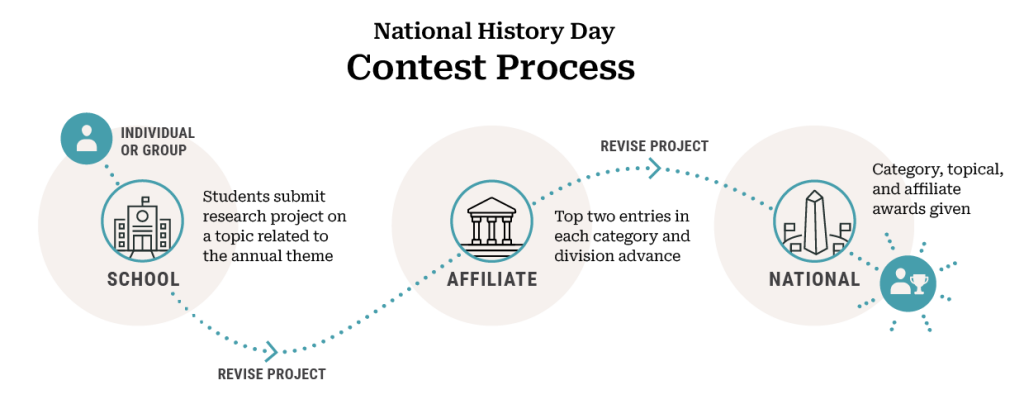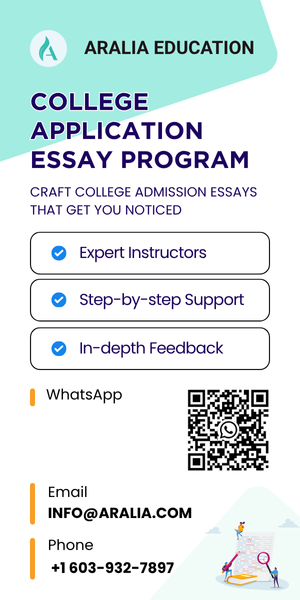85% of Aralia Students Place in Top Writing Competitions
1. NHD 2024-2025 Theme: Rights & Responsibilities in History
The theme for the 2025 competition is “Rights & Responsibilities in History.” This theme encourages students to examine significant historical moments through the lens of the balance between rights and responsibilities. Participants will explore how these two forces have shaped society, considering cause and effect, historical change, and lasting impacts. The theme allows students to investigate different periods, events, and figures through their chosen project formats.
2. What is the National History Day Competition?
National History Day (NHD) is one of the longest-standing history competitions in the U.S., established by a nonprofit organization of the same name. The competition, open to students in grades 6-12, focuses on historical research, interpretation, and creative expression. Founded in 1974, NHD attracts over 600,000 students annually worldwide, challenging them to conduct original research on historical topics, create projects, and present their findings in innovative ways.
The competition allows students to explore history in depth by researching in libraries, archives, and museums. Participants then present their research findings through various formats including papers, exhibits, performances, documentaries, or websites described below.
- Documentary (Individual and Group): A short film that uses historical footage, photographs, and interviews. Documentaries must not exceed 10 minutes in length.
- Exhibit (Individual and Group): A display board with text, images, and artifacts that tell a story or present an argument. When displayed, the exhibit must be no larger than 40 inches wide, 30 inches deep, and 72 inches high.
- Paper (Individual): An essay that uses primary and secondary sources to analyze a historical event, person, or topic. Papers must be between 1500 to 2500 words, and all references and citations must be included.
- Performance (Individual and Group): A live presentation that uses drama, music, or other art forms to tell a story or make an argument. Performance must not exceed 10 minutes in length.
- Website (Individual and Group): A multimedia website that presents a historical event, person, or topic using text, images, and other media. The website must be constructed using the NHD website editor: org/nhdwebcentral
Please note that the Paper category allows individual participation only. The competition starts locally, with students competing at their school or regional level. Winners at the regional level move on to the state level, and winners at the state level move on to the national competition held annually in June at the University of Maryland, College Park.
At the national level, students present their projects to judges, who evaluate them based on historical quality, presentation clarity, and theme relevance. Winners in each category receive scholarships, prizes, and recognition.
3. What are the categories of the National History Day Competition?
Students can choose from these five different categories for their projects:
Each category is judged separately by a panel of historians and educators. While students may only submit one project in one category, they can compete individually or as part of a team (with 2-5 members), unless they choose to do an individual paper.
For teams, all members must be in grade 6 or above, and the team’s division will be based on the grade of the oldest team member.
Competition Divisions
The competition is divided into two main divisions based on grade levels:
- Junior Division: Grades 6-8
- Senior Division: Grades 9-12
4. The NHD Competition Process
The journey to National History Day begins at the local level. Students typically start their projects within their schools, whether public, private, charter, or homeschooled. From there, outstanding projects are selected to compete at affiliate (state, territory, or country) or regional levels. The top two projects from each category at this level are invited to participate in the national competition.
The national competition takes place in June at the University of Maryland, College Park, where approximately 3,000 students from across the United States and worldwide showcase their projects

Key Stages of the Competition:
- Research and Prepare: Students select a topic related to the annual theme, conduct research, and choose a format to present their findings.
- School-Level Competition: Projects are first presented and judged at the school level.
- Regional/State Competitions: The best projects move to regional or state-level competitions.
- National Competition: The top two projects from each category and division are invited to compete at the national level.
Students are encouraged to revise and improve their projects between each level based on feedback received.
Unlock Your Writing Potential: Students in Our Writing Competition Preparation Class Are More Likely to Secure Awards
5. Judging Criteria
Projects are evaluated based on two key components:
- Historical Quality (80%): This is the most significant factor in judging. It assesses the research quality, the historical argument’s strength, and how well the project aligns with the competition theme.
- Clarity of Presentation (20%): This criterion varies by project category but focuses on how effectively students present their arguments using their chosen format.
6. Awards and Recognition
Students who participate in the competition can receive recognition at various levels in the form of certificates, medals, trophies, special awards, and scholarships, with national winners often earning significant prizes, including college scholarships.
7. Important Dates for the 2025 Competition
For students participating in the 2025 NHD competition, here are some key dates to keep in mind:
- Registration opens: Monday, October 7, 2024
- Registration deadline: Friday, December 20, 2024
- Submission deadline for papers, websites, documentaries, and all written works: Friday, February 25, 2025, 8:00 AM
Please check with your local NHD affiliate for specific deadlines and submission procedures. Regional competitions may have additional requirements for international participants, including those in China.
8. Why Participate in National History Day?
Participating in the National History Day (NHD) competition offers students numerous benefits beyond winning. Here are three key reasons to consider joining:
Skill Development: NHD helps students build essential academic skills, including historical thinking, research, communication, and project management. These skills are invaluable for college applications and future academic endeavors, making students stronger candidates for university applications.
Engagement with History: Students have the unique opportunity to dive deeply into historical topics of their choosing, developing a better understanding of how historical events shape our world today. The competition also fosters creativity, allowing students to present their findings in various formats, from documentaries to performances.
Professional Feedback: Throughout the competition, participants receive feedback from historians and educators, giving them insight into how to improve their work and making this competition a highly respected program among college admissions officers. This professional evaluation not only enhances their projects but also helps build a stronger foundation for future academic pursuits.
9. How to Create an Outstanding Submission for the National History Day
To create an outstanding submission for the National History Day competition, we have some suggestions to help students get started:
Choose an Appropriate Topic based on the competition’s theme “Rights & Responsibilities in History.” Ensure it’s specific enough for in-depth research, but broad enough to provide multiple perspectives. Most importantly, the topic must be interesting, since you will be focusing on this topic and researching for many months. The organization highlights that students shouldn’t choose current events as their main topic, but should focus on inspiration from similar historical examples.
Conduct Thorough Research About the Topic. We suggest that students start with secondary sources, and then move to primary sources. Keep organized notes and pay attention to details, as a strong historical argument relies on well-documented evidence. The competition recommends that students have a wide variety of research sources to strengthen their arguments and diversity of submissions.
Revise and Improve: After completing your first draft or version, seek feedback from teachers, mentors, or peers. Incorporate constructive criticism and refine your submission at every stage of the competition.
10. Preparing for NHD with Aralia’s Courses
Aralia offers comprehensive courses to guide students through the National History Day competition. Our curriculum is divided into four key stages:
- Research and introduce the competition
- Develop the concept and finalize the topic
- Complete the first draft and refine
- Submit the final project
With award-winning coaches and a structured approach, we ensure that students are well-prepared to create polished and competitive projects!
Aralia's Courses

The National History Day Preparation Program is a course designed to help students prepare for National History Day, a nationwide competition encouraging students to explore historical events and ideas.











